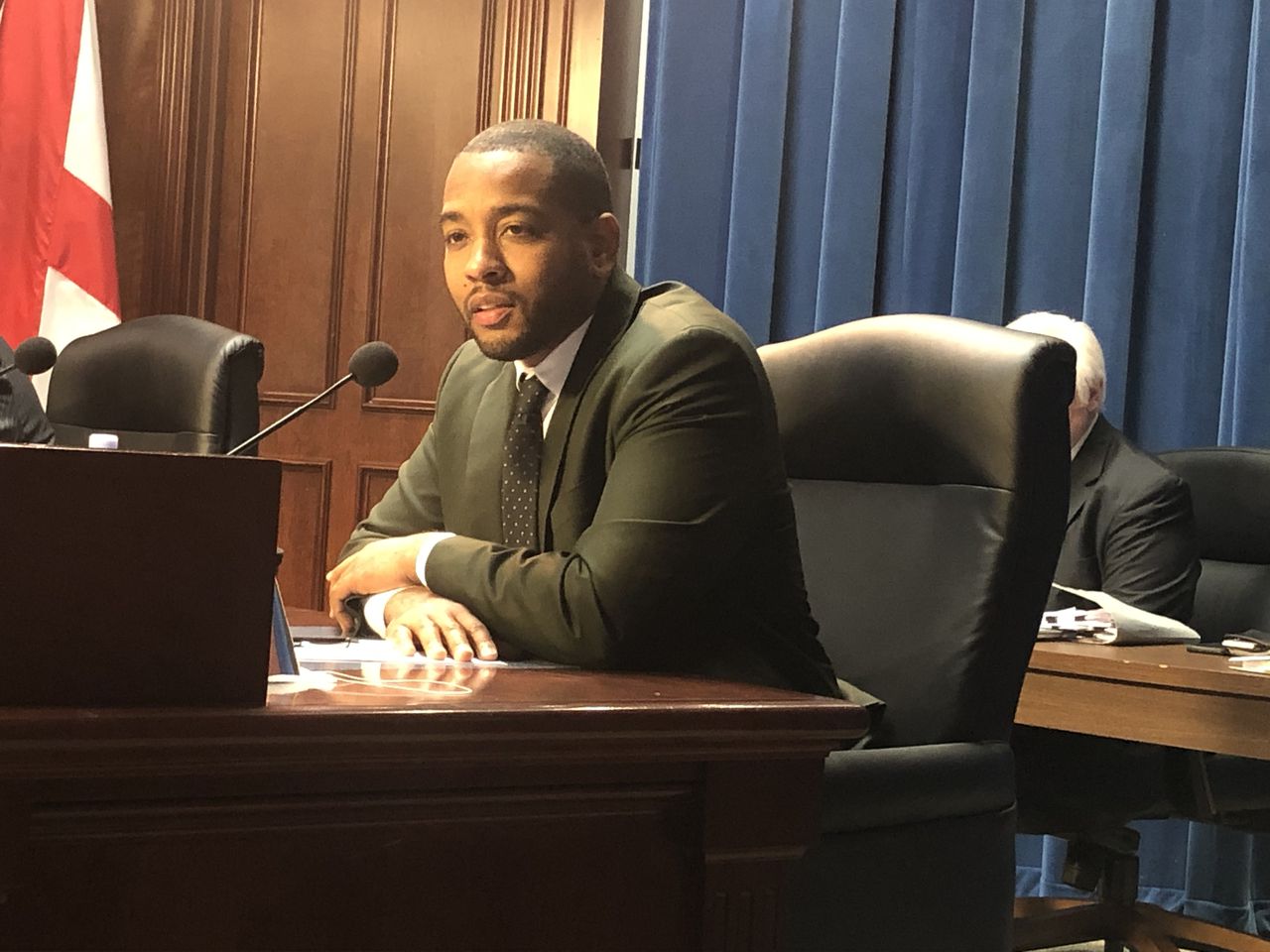Huntsville councilman Devyn Keith shuts down illegal rental property
Huntsville city councilman Devyn Keith says he is shutting down a short-term rental property he operated at his home for several months late last year and this year in violation of city ordinances but said he did not knowingly break any laws.
Keith said he reached a resolution with the city to terminate the operation at his north Huntsville home.
“My negligence is my fault,” Keith said.
Under terms of the resolution, Keith said he will reimburse the city for lodging taxes owed associated with the rentals in addition to no longer renting the property. Keith is among dozens of people in Huntsville who operated short-term rental properties – sometimes referred to as bnbs – that violated city laws and worked with the city to reach settlements.
The city has also filed lawsuits in some instances to stop illegal short-term rentals and recover lost lodging taxes. Keith was not among those sued.
As Keith was dealing with the city over operation of his short-term rental, he also was facing misdemeanor shoplifting charges this year. He recently pled guilty in the shoplifting case in which he received no jail time but was banned from Walmart.
Keith said he believed that it would be legal to operate the short-term rental property because he continued to live at the property, which has four bedrooms.
“I just made the assumption, and it was wrong, that because I lived there — it’s actually my home – I could rent those rooms out,” Keith said. “And when I was told it doesn’t work that way, I said, ‘OK.’ And I said, ‘I’ll shut it down.’”
The city of Huntsville’s website spells out the process for operating a short-term rental property. The first step, according to the website, is to determine if city zoning ordinances permit operating a short-term rental.
“Generally, short-term rentals are not permitted in most residential zoning districts,” the city website states. Keith’s north Huntsville property is in a residential area and the zoning district for the property, designated by the city as R1A, does not permit rental properties.
Keith said he could not remember exactly when he was informed that his rental property violated city ordinances but said it was “January or February” of 2023. He said he then applied for a rental operating license, which was denied.
Keith said he met with the city’s legal department to work out a resolution to paying back lodging taxes on previous stays, adding that he went through the same process as others operating rental properties illegally.
“This happens very commonly,” Keith said.
According to the city’s website concerning short-term rentals, the lodging tax rate is 9 percent plus $2 surcharge per room per night. Keith said his final reservation is in October. At that point, he said the city will make final calculations on how much he owes in lodging taxes, and he will make the reimbursement.
The rental rate listed on the Airbnb website for Keith’s property is $142 a night.
The Huntsville Lede reported in August that the city has sent notices to more than 50 property owners operating short-term rentals in violation of city ordinances. Trey Riley, attorney for the city, described it as a “first wave” of notices his department plans to send out.
Keith’s property continues to be listed on the popular short-term rental website Airbnb, but it is no longer accepting reservations. Keith said that his resolution with the city allowed him to honor reservations that had been made at his property and the councilman said similar arrangements had been made with others as well.
The city’s legal department did not respond to an AL.com inquiry about the terms of its resolution with Keith.
On the Airbnb website, Keith’s property is known as “The Greenery” with four bedrooms and 3½ baths. The booking at the house is for the entire house, according to the website, and guests are not limited to certain areas as can be the case with some short-term rentals. It also indicates Keith renovated the home himself. According to the property deed, Keith purchased the home on June 26, 2020.
Keith attained the status of “superhost,” which the Airbnb website defined as “experienced, highly rated hosts who are committed to providing great stays for guests.” The website said Keith’s property had an average review score of 4.96 on a five-point rating system.
Based on reviews on the Airbnb website, Keith has operated his rental property since at least August 2022. The website lists 85 reviews of Keith’s property.
